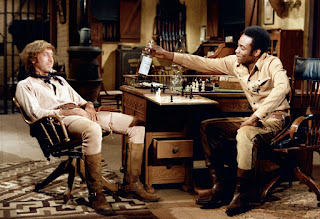In 2007, Nevada legislature passed (or voted to adopt) the Federal Adam Walsh Act - a Federal Law designed to "protect" the public from "dangerous" sex offenders.
Since 2007 the actual implementation of the law has been stalled due to various appeals.
Recently, the Nevada Supreme Court had had enough and voted to implement the Adam Walsh act without further delay.
Why is this a problem?
Shouldn't the public be protected from dangerous sex offenders?
Well. Yes, of course.
Aside from the fact that several studies over the past few decades clearly show that sex offender registries in and of themselves do almost nothing to "protect" anyone from being the victim of a crime and simply waste taxpayer money and law enforcement resources, the Adam Walsh Act is ridiculously broad, extreme and oppressive.
For example, under Nevada’s previous law, people convicted of sex crimes (which, in some cases could be something as mild as being arrested for urinating in public) were assessed on their risk of re-offending. Thousands of offenders who were deemed low risk, or a Tier 1, were not subject to community notification. Under the new law, which applies to offenses dating to 1956, tier levels are based on the offense committed, regardless of circumstances. Many offenders already deemed by a judge to be no threat to the community will now have their names, photos and addresses available for public scrutiny.
Many previously classified as a Tier 1 (low risk or NO risk) are now reassessed as a Tier 3 (very high risk, sometimes called "sexually violent predator") and will be subject to lifetime reporting requirements. The plaintiffs fear they will lose their jobs or businesses, be forced from their homes or have the safety of their families jeopardized when their employers and neighbors discover their status.
There's another problem in what you just read. I put it in bold for you. This law goes back to anyone convicted of a crime SINCE 1956. Folks... in 1956 IT WAS ILLEGAL TO BE GAY. So let's say that there's someone out there, in Nevada, alive today who was arrested for having homosexual sex in 1962. Thanks to this new law, that person is now instantly considered a sex offender!
What the hell is wrong with our legal system?
Here's an excerpt from the very well-written article in today Review Journal:
Vicki Henry, with the group Women Against Registry, also raised concerns about the law, saying it will “destroy the families of those who have lived a law-abiding life for the last 20, 30, 40 or 50 years.”
“We will have registrants losing their jobs, homes foreclosed on, and children beaten up, homes burned, property damaged and wives losing their jobs when someone learns they are married to a registrant,” she said in a statement.
She said the law will essentially “place a target on the backs of all living at any address listed on a public registry.”
Among other things, the lawsuit claims the state has tried to enforce the law against people convicted of offenses that are no longer crimes and against people who have obtained court order relieving them of their obligation to register as a sex offender.
One plaintiff, identified as Doe 3, pleaded guilty in 1961 when he was 19 years old in California to a misdemeanor counts of indecent exposure and annoying a minor. He was not required to register as an offender. Now 74 and the father of four adult children, he will be required to register as a Tier 1 offender and be subject to community notification.
Another, Doe 5, pleaded no contest in 1997 in Florida to one count of solicitation of a child via computer. At the time of sentencing, he received a withheld adjudication, meaning he has no criminal conviction, the lawsuit said. Earlier this month, the businessman was informed by Nevada that he would be classified as a Tier 3 and subject to lifetime registration and community notification. He also must report in person to law enforcement every three months.
Doe 7 was released for lifetime supervision by the state Parole Board in 2011 and in April a court terminated his requirement to register as a sex offender. But the Department of Public Safety told him this month that he would be designated as Tier 3. (The highest risk category available!)
The lawsuit also claims the law is unclear about how long different tiers must register for and when the clock starts, and fails to address how the state will identify people who were previously not required to register.
It further argues the law breaches deals some offenders reached years ago with prosecutors when they entered guilty pleas.
The law, the filing said, “is unjust, oppressive, vague, unenforceable, arbitrary and vindictive, and is equivalent to imposing new probation, parole, lifetime supervision or other criminal sanctions on plaintiffs.”
It also argued it will not promote public safety and will disrupt the criminal justice system by deterring defendants from entering into plea agreements.
_________________________________________________________________























